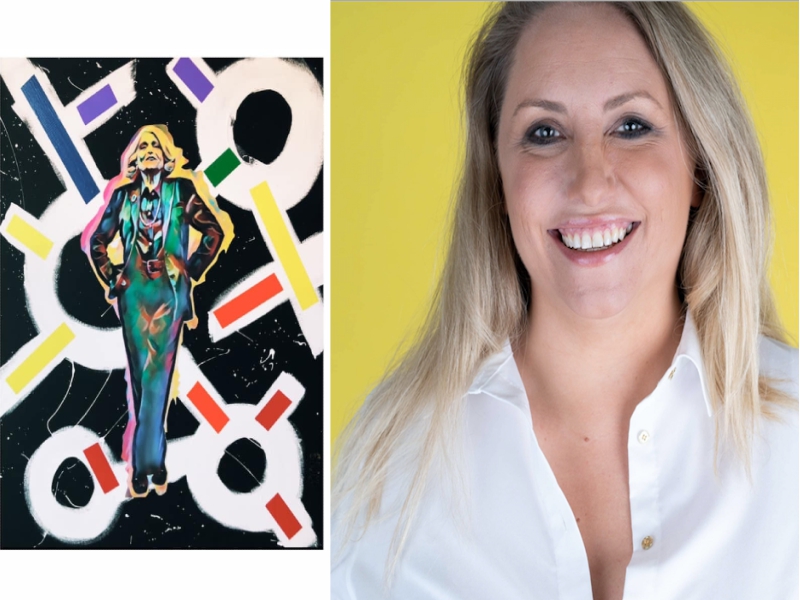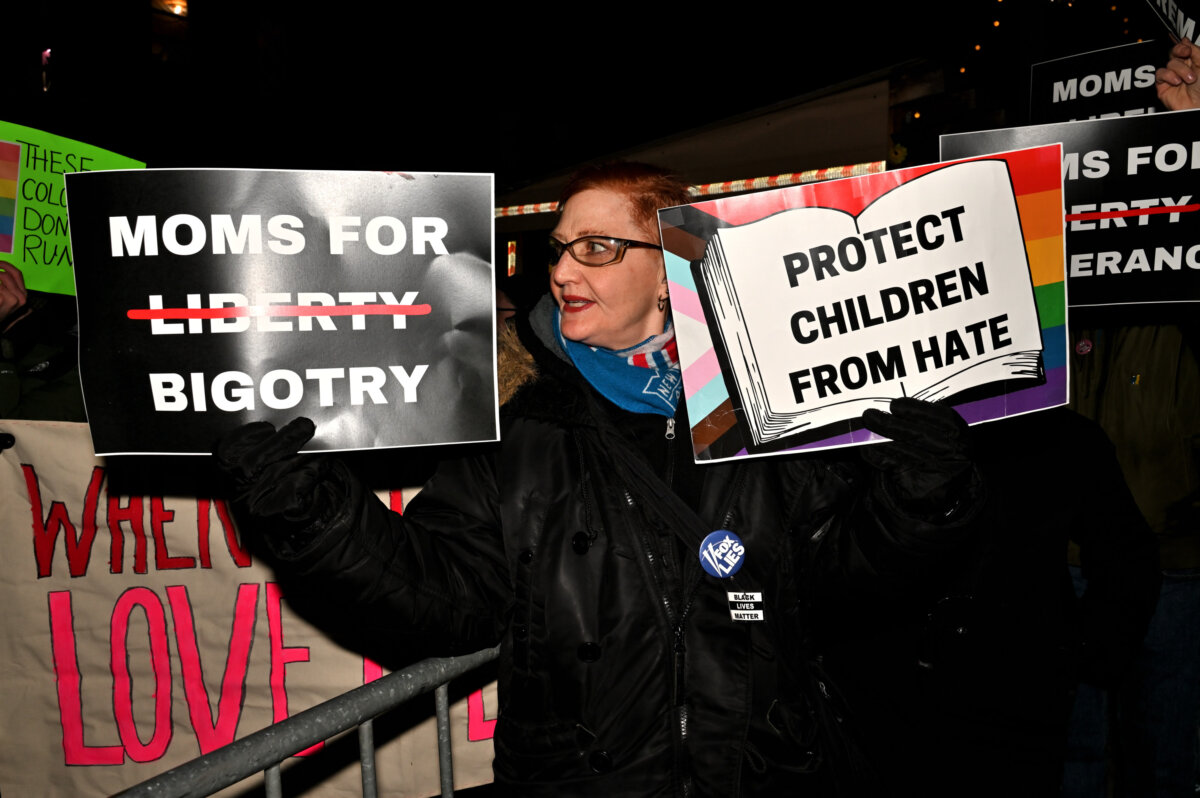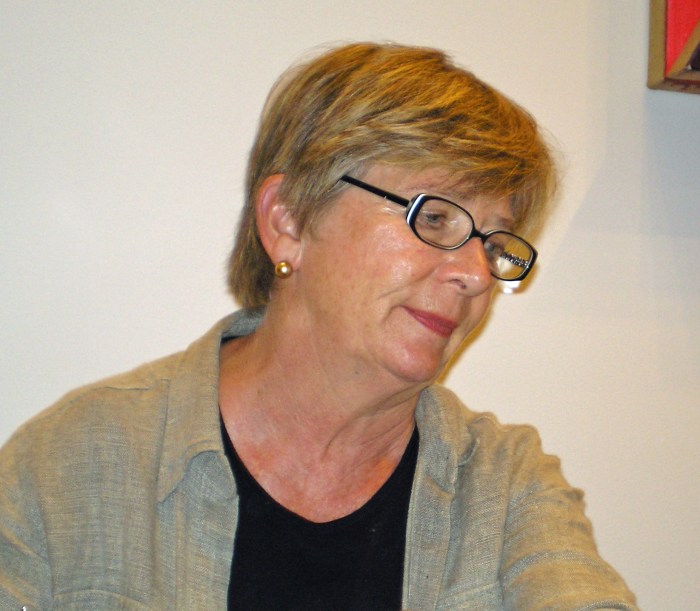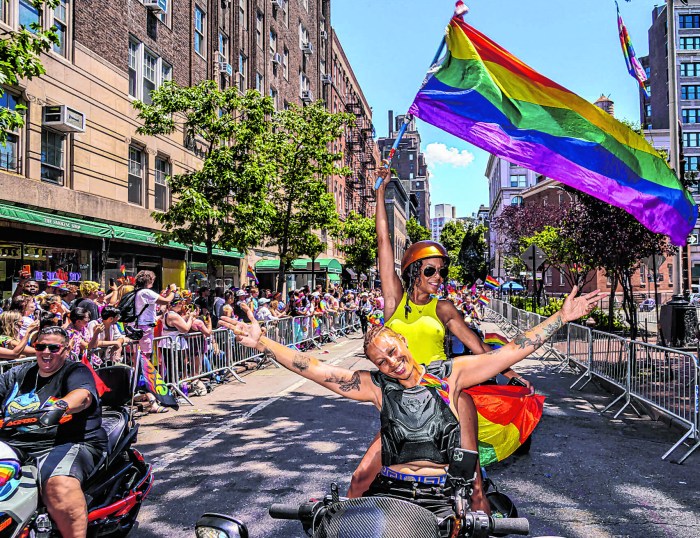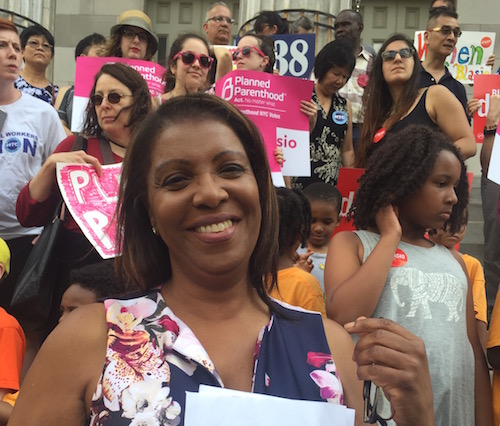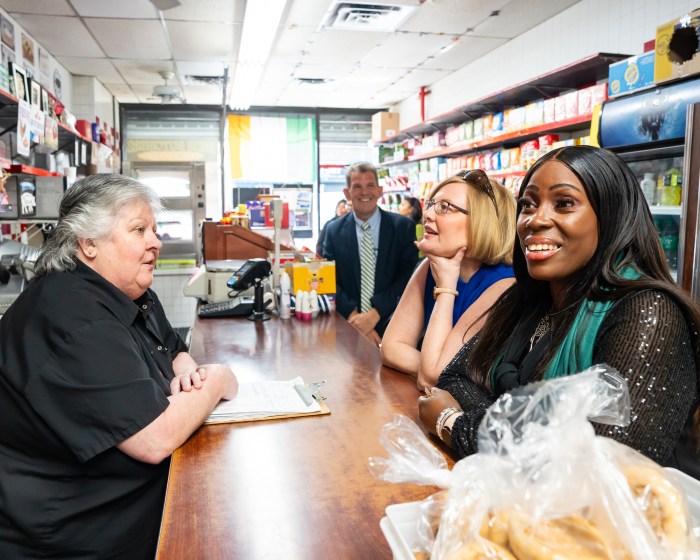When LGBTQ+ Power Players cover artist Rachel Wilkins quit her corporate job in the United Kingdom and moved to Greenwich Village in her early twenties, it was a snap decision, and didn’t come without uncertainty.
“I was painting and then I was going to a bar job at night, and then I was creating until three or four o’clock in the morning. It was just this cycle of paint, create, work, sling drinks . . . And something just said to me, ‘You’re supposed to be here. Don’t go home,’” she recalled.
“All right, I’m here, I’m making art. I don’t know why I’m here, I don’t know if I’m going to stay or what my plan is, but I’m just going to keep creating,” Rachel remembers thinking.
It was a gamble that paid off. Rachel began to make inroads as an artist, gradually gaining name recognition, building a client base, and cultivating relationships with gallerists. As she moved into her thirties and evolved as an artist, her creative process became less impulsive and more structured.
But for a period of almost a decade, her work was shelved. Rachel founded Conception Arts in 2011, building a business that went on to help over 8,000 artists in 14 cities around the U.S. exhibit their work. Then, when the pandemic hit the United States in spring 2020, exhibitions and events were canceled and Rachel, like millions of others, was stuck at home.
“I found myself home for like the first time in a decade, and just thought, ‘I need to be in the studio.’ That was my only solution to dealing with what the hell is going to happen . . . So I ended up going into the studio and I unpacked all my paints and then I realized, ‘Oh my gosh, I’ve forgotten how to do this,’” she recalled.
Rachel began to work on a piece about Edith Windsor, an LGBT rights activist and the lead plaintiff of United States v. Windsor, a Supreme Court ruling in 2013 that marked a major victory in the fight for equal protection. The court ruling struck down the Defense of Marriage Act, thereby extending federal rights and privileges to same-sex spouses.
For Rachel, who requires a visa to stay in the country, the Windsor case secured her right to remain with her wife in the United States. Needless to say, Edie Windsor holds special significance for both of them.
Through the process of creating the Edie Windsor piece, Rachel realized how unfamiliar she was with the names, faces, and stories of other activists and trailblazers in the fight for equal rights. So she set herself a challenge. In June 2020, in honor of Pride, she would create a portrait every day of a different LGBTQ icon.
The end product is “Shoulders of Giants,” a series of multimedia portraits, individually and collectively an homage to LGBTQ icons who demanded and demonstrated for change, for progress, for rights. Each portrait is accompanied by a letter of thanks written by a member of the LGBTQ community.
“Shoulders of Giants” is also the inspiration behind the LGBTQ+ Power Players cover art, which reflects the sentiment echoed by so many throughout the past month: that pride began as protest and struggle, and that this history — the stories of those who have come before — must be preserved.


